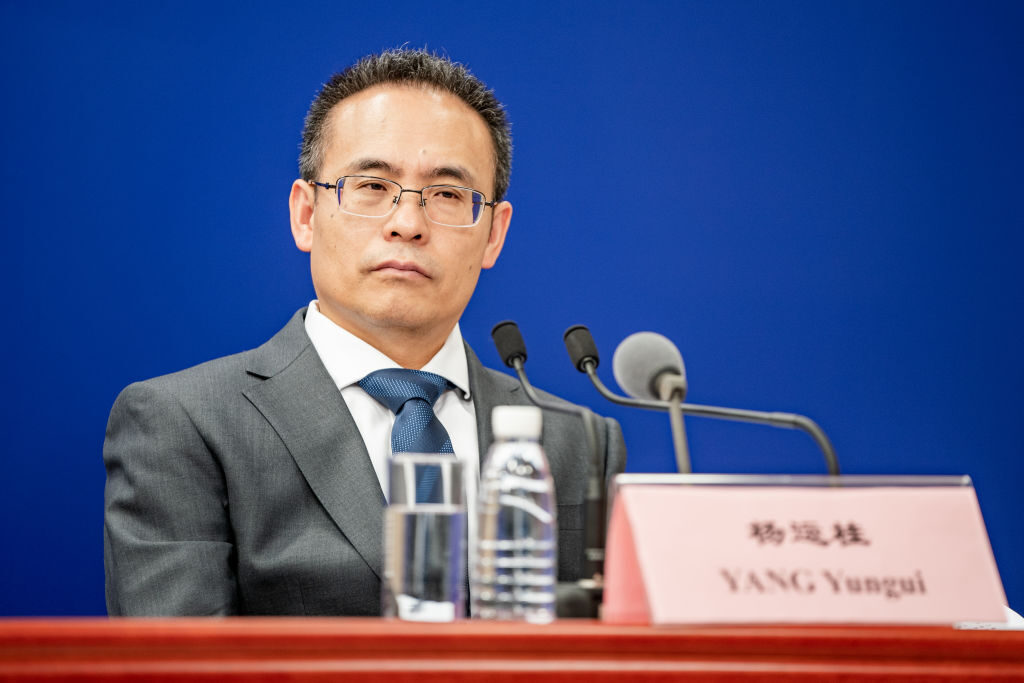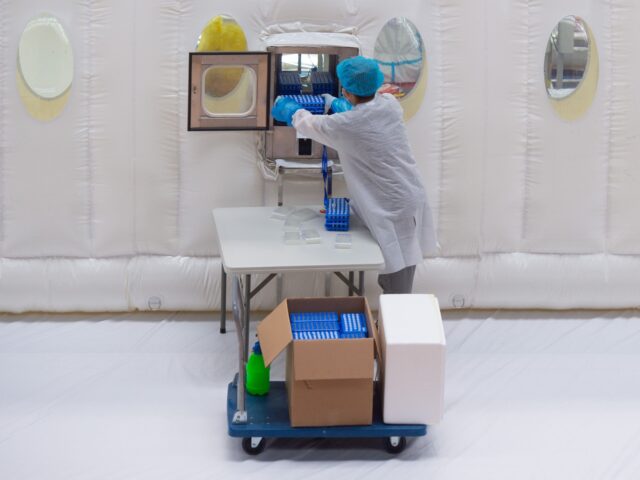Congressional lawmakers appear ready to ban a CCP-linked biotech firm from operating in the U.S. after it was accused of stealing Americans’ DNA.
If Congress takes action, the CCP-linked firm, Beijing Genomics Institute (BGI), would effectively lose its ability to operate in the U.S., reshaping the geopolitical posture between the U.S. and China.
The CCP-linked biotech giant concerns lawmakers for several reasons:
- Pentagon lists BGI as a “Chinese military company”
- The 2021 U.S. intelligence assessment linked BGI to an effort to obtain human DNA from the U.S.
- CCP-linked companies must share their compiled data with the CCP
- BGI America operated in the U.S. since 2010
To curb BGI’s alleged threat to Americans, Rep. Mike Gallagher (R-WI) introduced legislation earlier this year in the National Defense Authorization Act (NDAA). His initiative would specifically prevent BGI from conducting business with the U.S. government and/or receiving any U.S. government reimbursement.
The legislation must also have the support of the Senate. Sen. Bill Hagerty (R-TN) is prepared to introduce similar legislation to ensure Gallagher’s language is included in the final NDAA conference report.
“This important provision to prevent CCP-aligned Chinese biotech companies from collecting Americans’ DNA,” Hagerty told Fox News last week. “It’s deeply alarming that the Chinese Communist Party, through China’s ‘national champion’ biotech companies like BGI, is harvesting genetic data from millions of people around the world for storage and analysis back in China, often in collaboration with the Chinese military.”

Yang Yungui, deputy director of Beijing Institute of Genomics of the Chinese Academy of Sciences (CAS), attends a press briefing on China’s part in the WHO-convened global study of the origins of COVID-19 on March 31, 2021 in Beijing, China. (VCG/VCG via Getty Images)
“I urge my Senate colleagues to support this effort to prohibit the U.S. government and its contractors from buying equipment from adversarial biotech companies whose intent is to exploit Americans’ genetic and medical information for malign purposes,” Hagerty added.
A spokesperson for the Chinese Embassy in Washington, DC, claims no Chinese company improperly gained access to genetic data, the Washington Post reported in October:
But U.S. officials note that BGI was picked by Beijing to build and operate the China National GeneBank, a vast and growing government-owned repository that now includes genetic data drawn from millions of people around the world.
…
Beijing’s drive to sweep up DNA from across the planet has occasionally stirred controversy, particularly after a 2021 Reuters series about aspects of the project. Chinese academics and military scientists have also attracted attention by debating the feasibility of creating biological weapons that might someday target populations based on their genes. Genetic-based weapons are regarded by experts as a distant prospect, at best, and some of the discussion appears to have been prompted by official paranoia about whether the United States and other countries are exploring such weapons.
…
China has announced plans to become the world’s leader in biotechnology by 2035, and it regards genetic information — sometimes called “the new gold” — as a crucial ingredient in a scientific revolution that could produce thousands of new drugs and cures. If it wins the technology race, China stands to gain significant economic and strategic leverage against its chief rival, the United States, said Anna Puglisi, formerly the U.S. intelligence community’s chief national counterintelligence officer for East Asia.
Follow Wendell Husebø on “X” @WendellHusebø. He is the author of Politics of Slave Morality.

COMMENTS
Please let us know if you're having issues with commenting.